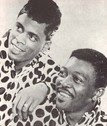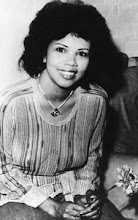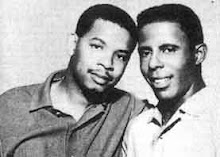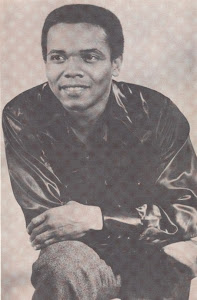CHILD IS FATHER TO THE MAN
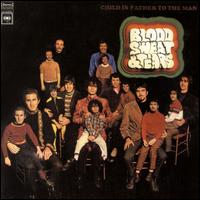
Year Of Release: 1968
Overall rating = 12
Perhaps "this album's influence is greater than the sum of its parts", but it's still among the better jazz-rock offerings out there.
Best song: I LOVE YOU MORE THAN YOU'LL EVER KNOWTrack listing: 1) Overture; 2) I Love You More Than You'll Ever Know; 3) Morning Glory; 4) My Days Are Numbered; 5) Without Her; 6) Just One Smile; 7) I Can't Quit Her; 8) Meagan's Gypsy Eyes; 9) Something's Goin' On; 10) House In The Country; 11) The Modern Adventures Of Plato, Diogenes And Freud; 12) So Much Love/Underture; [BONUS TRACKS:] 13) Refugee From Yuhupitz; 14) I Love You More Than You'll Ever Know; 15) The Modern Adventures Of Plato, Diogenes And Freud.
You know what's the goddamn coolest moment of this album? You probably don't, no way you could guess. You just read it in the 'best song' line. Yeah, yeah, it's when Al Kooper shouts out 'I LOVE you baby, LOVE you baby' and then, in a breathy high tone, adds 'more than you'll ever kno- oh- ohww'. In that way, blam, he triggers the John Lennon association, and that's godly. It's one of the most intense, breathtaking, simply gorgeous "white soul" offerings of the epoch, and almost earns the record an extra point in my little red book. Dude, we all know that Al Kooper can play (especially those of us who revere Highway 61 Revisited), but he can sing as well, oh yes he can.
Oh. Sorry. I forgot to mention that I've actually just started reviewing Child Is Father To The Man, the first and - arguably, but almost certainly - the best album of Blood, Sweat, & Tears. Why best? Because it's the only one that has Al Kooper on it, of course. It's also revolutionary, because most reverend rock historians will be telling you that this is the origin of the mighty movement known as 'jazz-rock' from then on. Of course, it's blatantly incorrect, because that leaves out Traffic, and, uh, the Graham Bond Organization, and, er, well, I guess Frank Zappa could be called one of the forefathers of jazz-rock as well, not to mention the works of real former jazz dudes like Miles Davis and all, but I guess this album just did to the jazz-rock movement more or less the same that Never Mind The Bollocks did for punk rock nine years later: widely popularized it. Indeed, this isn't your average elitist non-accessible jazzy record where the elitist sits and shed tears over the tenth minute of a convoluted sax solo while the average guy has long since slipped into his headphones to put on some Led Zep. The songs are mostly short, with just a couple six/eight minutes exceptions, and very much oriented for the pop single market. The presence of strings (the so-called 'Blood Sweat & Tears Ensemble') needn't surprise anyone, so probably the only unstandard element here is the regular three-man brass section of the band. Well, I guess we could call it a first of sorts. The basic problem is that the songwriting on the album just isn't that consistent. The songs may be single-oriented, but they're not too keen on inserting actual hooks, and getting on on the strength of groove alone doesn't always help, because as the album progresses parts of it become monotonous. That said, Al Kooper really really saves the day. He contributes three things - his voice, his playing, and his composition, and these are just about the best things on the record. The guy has always had marvelous taste, and his organ riffs and piano improvs are fresh and sharp, his voice straight and hard-hitting, and his songs actually the best of the bunch... scary, isn't it, that it was him, the band's organizer and main creative soul, to leave it first? The only analogy I can remember is Roy Wood leaving the Electric Light Orchestra after their debut record, but at least he left Jeff Lynne behind him, while Kooper simply didn't have anyone else in the band to match his talent. Imagine Ian Anderson leaving Jethro Tull after Stand Up and leaving the rest of the band to carry on, and you get my idea. Anyway, as I already pointed out, 'I Love You More Than You'll Ever Know' is the definite highlight on here, just slicing through your soul with its sharp blasts of brass and heavy bluesy guitar accompanying Al's soulful wailing, but it's not the only gem. 'My Days Are Numbered' is another one, wittily alternating mid-tempo bluesy verses with the gospelish slow chorus and Al turning in yet another performance of a lifetime. The brass parts are particularly tight on here, with magnificent trumpet riffs, but the backwards guitar solo by Ztak Evets (Ztak Evets, get it?) is clever as well. And that's only the first in a series of three tight jazz-poppy numbers contributed by Al: 'I Can't Quit Her' is a wonderful love song with some more Beatles influences in the singing, and some more unpredictable chord modulations in between the verses and choruses. Finally, there's 'House In The Country', about which the liner notes actually warn us that 'all the animal sounds are not played by animals', which is, uh, funny, I guess. I kinda like the Kinks' song of the same name more, but this one has got a cute nursery beat anyway. Kooper's two other contributions are a bit more debatable - I have to say that the pretentiously-titled 'Modern Adventures Of Plato, Diogenes And Freud' to me sounds like a pretty tuneless bore, pretty much like that clock on the wall that Al keeps lamenting about. It's just an atmospheric string-quartet based chant that seems to provide the platform for Al to unravel some of his metaphysic visions (funny thing, I didn't even consult the actual lyrics sheet before I wrote that line and now that I do I find the word 'metaphysic' directly mentioned in the lyrics! Ha!), and the bonus version on the CD release that substitutes the strings for a simple piano background hardly saves things. However, the eight-minute rave-up 'Somethin' Goin' On' is an entirely different thing already, because that's truly one solid groove, with excellent guitar and piano solos and a classy 'brass battle' at the end of the track with the bnd really getting it on. Too bad I can't really say anything about the non-Kooper tracks because to do that, I need to put 'em back on and my CD tracklist is written in tiny letters, I'm too lazy to select the right number on the player. You can already tell they're absolutely unmemorable, however, repeated listens at least confirm the fact that they all have something going for them. Like Steve Katz's vocal, for instance, which predates Bryan Ferry's bleating by a good four years. Or Kooper's soothing Dylanish organ on 'Morning Glory' (see, I remembered one! Ha! I'm Albert Einstein!). Or the mysterious "ondioline" on 'Meagan's Gypsy Eyes' (see, I remember another one! Ha! I'm Julius Caesar!) Or the really pretty vocal harmonies on the Goffin & King cover 'So Much Love' (see, I remember a THIRD one! Ha! Had I been in Moses' place, I wouldn't have to waste forty years in the friggin' desert!). In all, the only thing I find vaguely offensive is the silly 'Overture' - blame it on typical Sixties' excesses that an album should be beginning with one and a half minutes of bland symphonic intro and some jerk ridiculously laughing into the microphone. No wonder 'the laugher wishes to remain anonymous', as the liner notes say; probably afraid of getting a black eye for that. But never mind the excesses, just keep in mind that this is the beginning of jazz-rock as a popular movement and a solid beginning at that. And don't blame it for all those late-period Chicago records. Al Kooper might have been a giant of art, but he sure wasn't muscular enough to prevent that from happening.

+OUDE.jpg)





